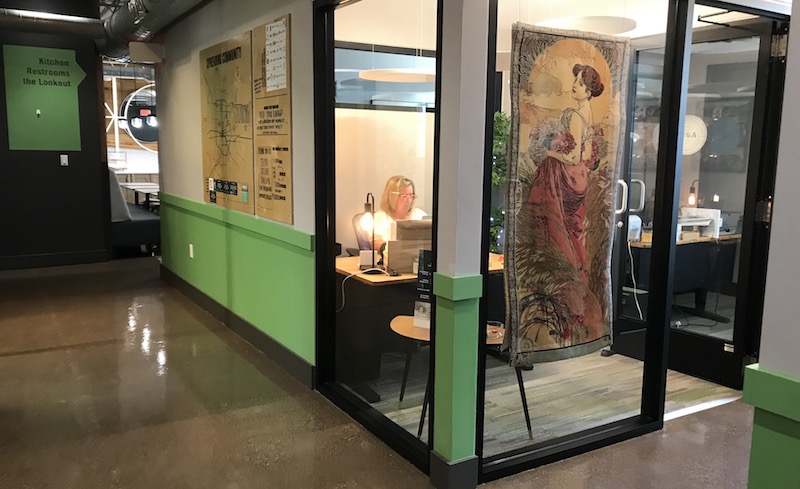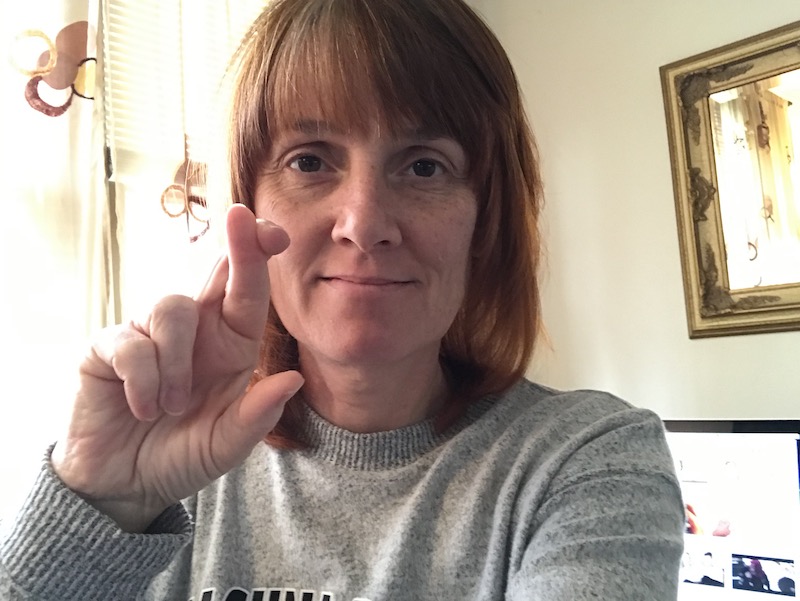
I’m an old pro when it comes to using coworking office space. I was introduced to the concept of coworking early. In 2012, I was the only employee in my website development business. I could work from my home office but I wanted two things that proved difficult for a freelancer to get at the time:
A business address and cheap conference room space that didn’t look cheap.
I joined a coworking space and proceeded to use it rarely. Even so, I had discovered coworking.
With that first coworking membership, I didn’t get any office space. I couldn’t afford it and it was unnecessary. With the exception of conference room space and a business address, everything about my website development business could be achieved at my home office or the local coffee shop with free wi-fi. (Thank you Panera Bread!)
Fast forward to March 2020. My agency has five private offices in the fastest growing coworking community in the midwest: COHATCH. With five offices, we boast the largest footprint in their largest coworking location. It’s great. Except for one problem: We’re not using it.
We’ve been working from home.
Not only have we been working from home, we’ve been doing so successfully. My newest employee’s first day of work was on Zoom and she has yet to work a day in the office. COVID-19 has eliminated any doubt about our ability to function out of a 100% virtual workplace.
Thanks, COVID. Sort of.
The realization that my team can definitely do their jobs from the comfort of their own homes leads me to ask myself, “Why pay for office space at all?” That is the question I’ve been asking myself and discussing with my accountant for several weeks now. We keep turning it over and coming up with more questions.
Office space is super expensive. But I want to make sure I’m considering it’s total value. It’s not just the space that’s valuable. Office space has other benefits that I don’t want to do without.
Office space helps me take myself seriously as a CEO.
Separating my workplace and work life from my private space and private life has transformed the way I think and act in my business. I take my business seriously. As a result, I make better decisions with the growth and vision of my business in mind. Having coworking office space has helped me separate my business identity from who I am as a person. When I can easily see that my business has different and sometimes competing needs from me, then I do a better job of getting what I want out of my business.
Office space lends a greater sense of legitimacy to my business.
The truth is, we’ve never met the majority of our clients in person because they are located all over the United States. Having photos of our real office space on our website matters more to the clients who have never met us in person.
But, if I look back to when I was just getting my website development business started, then I remember that most of my prospective clients were local. Local clients and prospective clients expected me to meet them at their own office or at a coffee shop. Driving to these meetings worked fine until I became busier with work and even more people wanted to meet with me. Driving back and forth to meetings and getting my actual work done became impossible. So, I obtained a small office in a new coworking location. As a result, the expectations of my local clients and prospects changed. They no longer expected me to be available for meetings outside of the office.
Could this change be attributed to a change in my mindset as a CEO and manager?
Yes, partially. I made a mental leap when I assumed people wanted to meet me at my office. My time felt more valuable and this change in mindset affected how I communicated my availability. With office space I had more control over the terms of my meetings.
The legitimacy offered by office space also lends itself to my hiring process.
I’ve always looked at hiring as a two-way street. The people I hire have options and I want to be at the top of their list. Prospective employees need to know my business is not an experiment and that their job is not an experiment. While I can convey this message through my professionalism and track record, a business address with access to meeting space gets me halfway there.
An official workplace gives my employees a place to go.
Sometimes people need a place to go to work for reasons unknown to me. I don’t want employment at my company to be difficult for people who have:
- young kids at home
- roommates
- an unstable home life
- lack of privacy at home
- slow internet connection, no air conditioning
It’s a mistake for me to assume that working from home is even possible for all of my employees.
Office space adds to the meaning of work.
Some people gain more meaning from doing their work when it is at “a place of business.” Having a place to work serves as an important backdrop for employees to put on a work identity that is separate from their home identity. Just as having office space helps me take my business seriously, a place to go to work validates the importance of an employee’s role.
An official workplace allows us to go home.

There was a time in my career when my business was growing fast and it was a challenge for me to keep up with everything I needed to accomplish. I had no boundaries with my work and I would respond to my email on weekends. I just didn’t want to deal with the pile of email I would have waiting for me on Monday. I worked more than I wanted to and before I knew it, my entire weekend would be lost managing other people’s website problems while they took the weekend off. I felt resentful and questioned why I went into business for myself in the first place.
It wasn’t until I was able to physically separate myself from my work with office space that I started to like it again.
Bringing work into the same space that we raise our children, relax, pray, grieve losses, consume media, argue with our partners, eat family meals, have birthday parties, etc. can have an affect on mental health. Work is an intrusion when it’s at home. Even when someone loves their work, the time and space it takes up can be resented when there is no way to go home. There’s something to be said for the ritual of shutting down my computer, packing up my things, and leaving work behind as I pull out of the office parking lot at the end of the day.
Having a real workplace helps with employee morale.
I did not realize how important face-to-face communication was to the morale of my team until governors ordered us to stay at home due to COVID-19. Even though I don’t accomplish more when I’m at the office, I do supervise and collaborate with my team. Supervision and collaboration is difficult when we’re all sitting at home. After a week of feeling disconnected from my team, I implemented daily Zoom office hours. I worried that my employees would feel burdened by the daily requirement of being connected on a Zoom screen share. On the contrary, each of my employees has expressed appreciation for it because it helped them feel like they had a place to go and they wanted the immediate access to team support that they were accustomed to having at the office.
Zoom has been a life saver. It has helped with the day-to-day functioning of my business and the connection we have as a team while we work apart. But, even with a live connection through Zoom, the spontaneous social interaction we’re used to is missing. Zoom can’t replace our regular office environment.
The coworking management will handle pandemics for me.
Okay, yes. This one. This has been a wonderful surprise. During this pandemic, I’ve had to make so many decisions that I never thought I would have to make. And, it’s not over. There are still decisions that need to be made. But, it has been a terrific relief to have the coworking management staff handle the office space decisions and supplies related to signage, rules, masks, social distancing, cleaning, and whether or not guests are allowed in the building. None of us in my coworking community could have predicted that we would need to count on the building management for anything more than making sure the coffee and tea supplies were stocked.
My accountant and I are still discussing the costs and benefits of office space to my business. Larger corporations are being criticized for not rushing to embrace work from home options sooner. But the truth is that it’s more complicated than having a good internet connection. Having a place of business means something more than just convenience. Office space can be much more than a place. It offers legitimacy, community, and a way for coworkers and business owners to be accountable to each other. As I consider making changes to our physical workplace arrangement, I need to consider all of the benefits. Could I really do without them?








